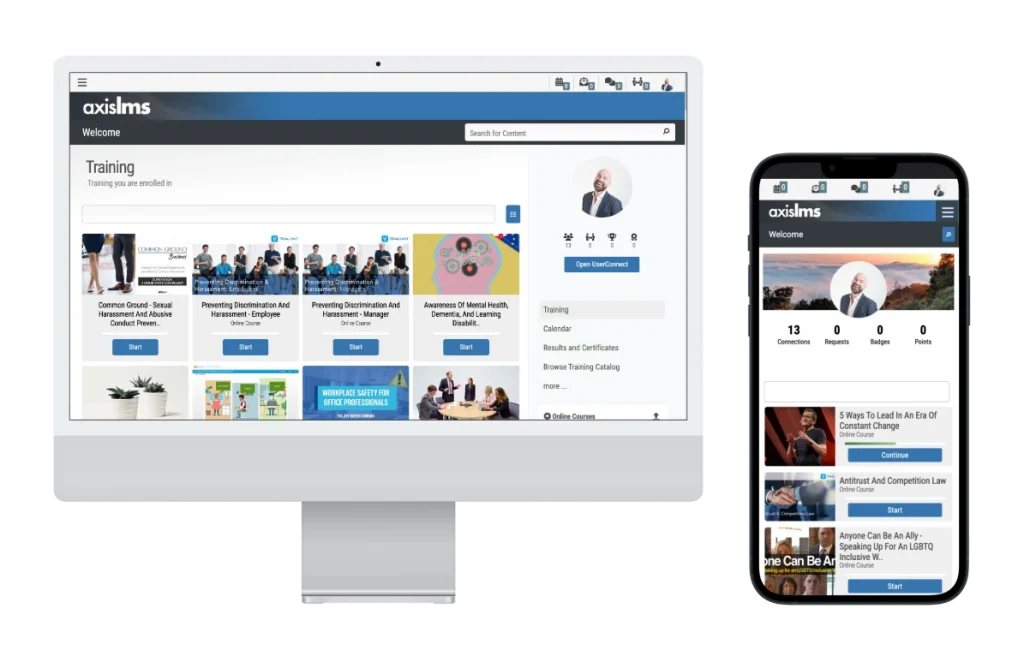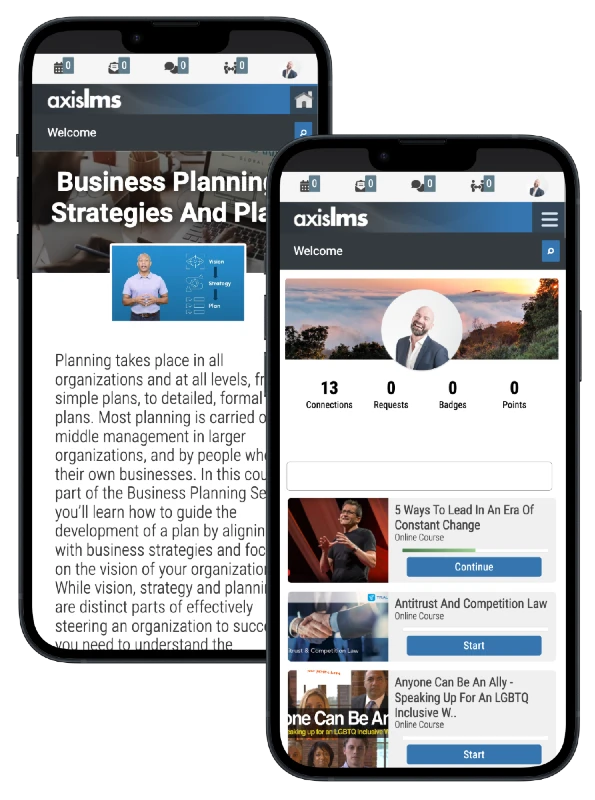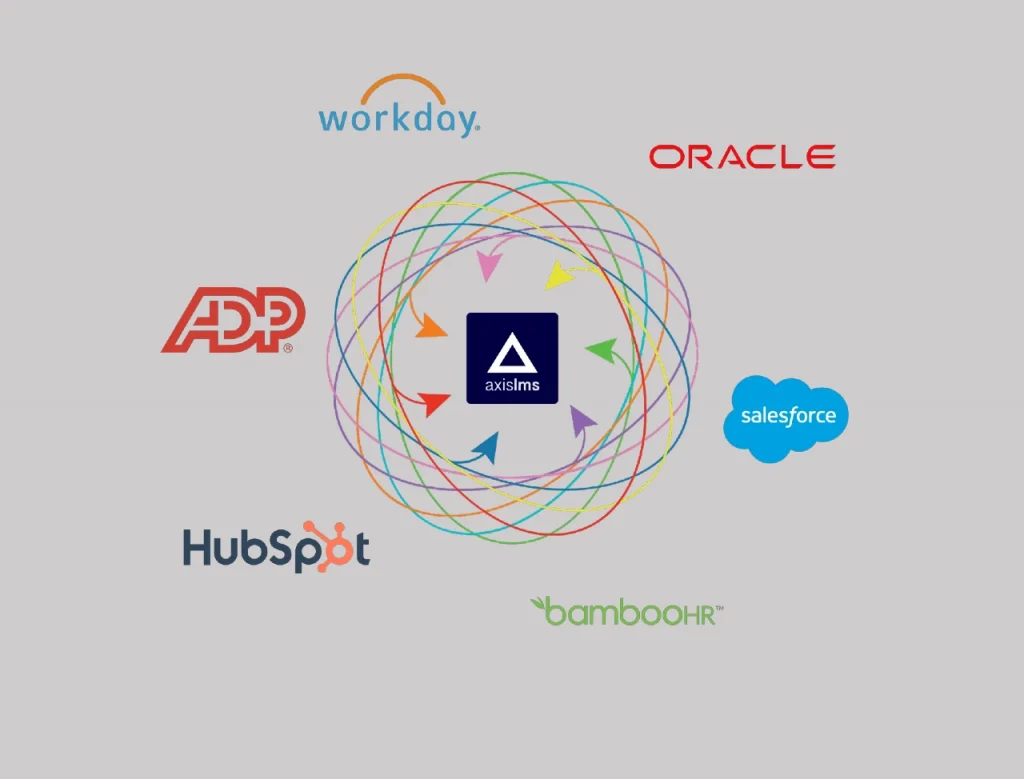In today’s fast-paced business environment, consulting firms are constantly seeking ways to enhance team performance, streamline client training, and maintain a competitive edge. Selecting the best LMS for consulting can be a game-changer. A Learning Management System tailored for consulting not only organizes knowledge and training efficiently but also ensures consistent service quality across teams.
In this blog, we explore the top 10 features every consulting firm should consider when choosing an LMS, ensuring your investment drives maximum value.
Why Choosing the Right LMS Matters for Consulting Firms
Consulting is a knowledge-driven industry where the expertise of your team directly impacts client outcomes. Traditional training methods can be time-consuming, inconsistent, and difficult to scale. A robust LMS allows consulting firms to centralize learning, track progress, and maintain a knowledge repository accessible to all team members. Selecting the right platform ensures seamless onboarding, continuous professional development, and improved client satisfaction.
A poorly chosen system can lead to wasted time, low engagement, and reduced return on investment. Understanding the critical features that distinguish the best LMS for consulting is essential for making an informed choice.
1. User-Friendly Interface
A user-friendly interface is critical for both learners and administrators. Consultants are often juggling multiple client projects and tight deadlines, so the LMS must be intuitive and easy to navigate. A well-designed interface reduces the learning curve, allowing users to access courses, track progress, and complete tasks without frustration.

Features like drag-and-drop course creation, clear dashboards, responsive design, and simple navigation menus enhance usability. Platforms that are difficult to use can lead to low engagement, missed learning opportunities, and underutilization of resources, ultimately affecting the overall productivity of your consulting team.
2. Customizable Learning Paths
Every consulting firm has unique training requirements depending on client projects, team roles, and specific service offerings.

An LMS that allows the creation of customizable learning paths ensures that each consultant receives targeted and relevant training. Managers can design tiered courses for different experience levels, track individual progress, and adjust learning objectives as needed.
Personalized learning paths boost engagement, improve knowledge retention, and provide a structured development framework that aligns with the firm’s strategic goals.
3. Comprehensive Reporting and Analytics
Data-driven decision-making is essential for consulting firms striving for excellence. A strong LMS provides in-depth reporting and analytics tools to monitor course completion rates, test scores, engagement metrics, and skill gaps.

Advanced reporting features allow managers to generate actionable insights, evaluate team performance, and refine training programs over time. Integration with existing business intelligence and reporting tools ensures that all data is consistent and accessible, enabling informed decisions that drive both operational efficiency and business growth.
4. Scalability
Consulting firms often experience rapid growth and expansion. An LMS must be scalable to accommodate increasing numbers of users, additional training modules, and evolving course content without compromising performance.
Scalability ensures that as your firm grows, the LMS continues to support organizational needs, making it a long-term investment rather than a temporary solution. Choosing a scalable platform also allows firms to expand training programs across global offices or remote teams without requiring a complete system overhaul.

5. Mobile Accessibility
Modern consulting teams are highly mobile, frequently visiting clients or working from various locations. Mobile accessibility ensures that learning is not confined to the office.
Consultants can complete courses, access training materials, and review content on-the-go using smartphones or tablets. Mobile-friendly platforms improve course completion rates, enable learning on-demand, and make professional development flexible enough to suit the dynamic schedules of consulting professionals. A seamless mobile experience is no longer optional but essential in today’s work environment.
6. Integration Capabilities
An LMS does not operate in isolation. The ability to integrate seamlessly with other business tools, such as CRM systems, project management software, and communication platforms, is essential.

Integration ensures smooth data flow, reduces administrative work, and enhances workflow efficiency.
For example, syncing with corporate HR systems allows automatic enrollment, attendance tracking, and performance reporting. Organizations seeking structured corporate training programs often benefit from corporate lms systems, which enable them to centralize learning management while maintaining operational efficiency.
7. Assessment and Certification
Assessments play a vital role in measuring the effectiveness of training programs. The LMS should provide quizzes, exams, practical assignments, and other evaluation tools to gauge knowledge retention and application. Certification features formally recognize achievements, motivate employees, and assure clients of your team’s competency. Additionally, certifications are useful for compliance training and industry standards, helping consultants demonstrate their expertise while enhancing client trust in your firm’s capabilities.
8. Robust Security and Compliance
Protecting sensitive client information and proprietary knowledge is critical in consulting. A secure LMS should offer encrypted data storage, secure login protocols, and adherence to industry compliance standards. Strong security safeguards maintain trust between your firm and clients, prevent unauthorized access, and ensure that confidential training materials remain protected. A reliable platform instills confidence in both employees and clients, making security a key consideration when evaluating LMS options.
9. Content Management Flexibility
Consulting firms create diverse training materials including documents, videos, case studies, interactive modules, and simulations. A flexible LMS should support multiple content formats and make it easy to organize, update, and reuse learning materials. Features like content tagging, version control, and modular course structures ensure that employees always access the most relevant and updated resources. Firms with limited budgets may also benefit from platforms designed as the best lms for small business, which provide rich content management capabilities without requiring extensive technical resources or investments.
10. Support for Corporate and Association Training
A versatile LMS should accommodate multiple training structures. While consulting teams often need corporate-style programs for internal development, professional associations may require broader community-focused learning. Platforms that support both scenarios allow firms to deliver consistent training to internal teams and engage with industry associations.

A Learning Management System for Associations provides flexibility for professional development, networking, and knowledge sharing across member organizations. Supporting multiple training types ensures that the LMS remains relevant across diverse consulting engagements and organizational needs.
Bonus Feature: Cost-Effectiveness and ROI
While not a technical feature, cost-effectiveness is critical. The platform should provide tangible value relative to its price. Comparing the LMS with alternatives such as the best LMS for small business options can help firms evaluate ROI, including reduced training time, improved consultant performance, and client satisfaction. Investing in a system that balances cost with robust functionality ensures long-term benefits.
Making the Final Decision
Choosing the best LMS for consulting requires careful evaluation of your organization’s needs, workflows, and growth plans. Use this top 10 feature checklist to guide your decision, ensuring that the platform enhances learning outcomes, improves productivity, and aligns with your business goals.
Before finalizing a platform, consider requesting demos, consulting references, and evaluating trial periods. Engaging your team in the selection process ensures higher adoption and smoother implementation.
Conclusion
The right Learning Management System can transform a consulting firm’s approach to training, knowledge sharing, and client engagement. By focusing on these top 10 features, organizations can confidently select the best LMS for consulting, creating a learning environment that drives both employee growth and business success. A well-chosen LMS is not just a software investment but a strategic tool that strengthens your consulting practice and positions your firm for sustainable growth.